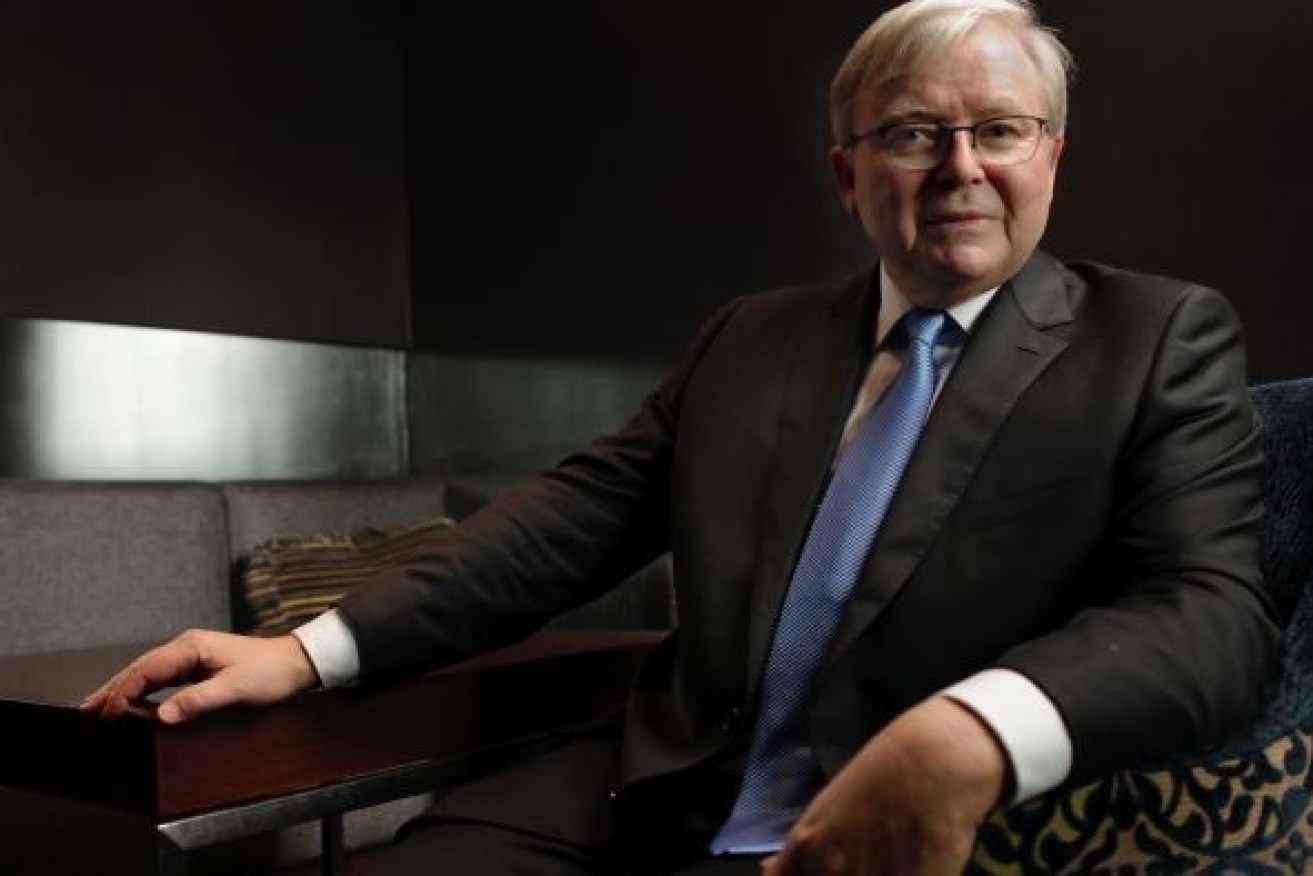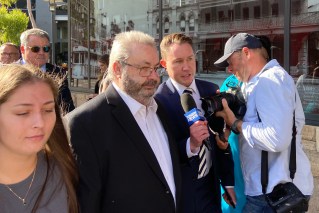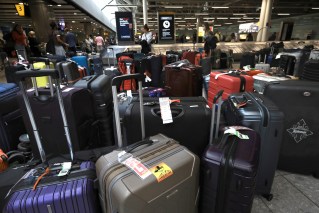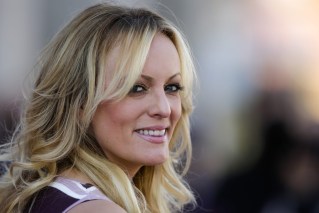Inquiry hears of need for more diversity, independent journalism
A Senate inquiry has heard evidence that the concentration of the media market in Australia is detrimental to the reporting of politics, the regions and climate change.

Kevin Rudd is 'a little bit nasty', according to President Donald Trump. (Photo: ABC)
The inquiry was established after former prime ministers Kevin Rudd and Malcolm Turnbull called for a Royal Commission into the influence of Rupert Murdoch’s News Corp, a major player in the Australian media. News Corp newspapers frequently editorialise in favour of the Coalition and conservative viewpoints.
While the inquiry is focussed on diversity, it has already attracted some submissions critical of the Murdoch empire. However, the most common theme is the need for Australia to have numerous other sources to ensure people are well-informed, particularly on politics, in the regions, and on issues such as climate change.
In a joint submission, media veterans Monica Attard, Eric Beecher, Peter Fray, Bruce Guthrie, Wendy Harmer, Andrew Jaspan and Alan Kohler argued more needed to be done to support new entrants to the market. They said the ongoing concentration of media ownership needed to be reversed “for the good of journalism, civil society and, ultimately, democracy”.
“Media ownership in Australia resides in too few hands. We all understand this is unhealthy for any civilised democracy: the research and data are irrefutable,” they wrote.
“To make matters worse, more than 5000 journalism jobs have been lost in Australia over the past 10 years. Large parts of the country are no longer reported, or are under-reported, resulting in little or no scrutiny and the loss of the critical watchdog role of the media in a functional, accountable democracy. “

News Corp has been accused of biased reporting of politics, including this front page of The Courier-Mail featuring former PM Kevin Rudd and ex-Premier Peter Beattie.
The University of Canberra’s News and Media Research Centre submitted that Australians access, on average, three sources when consuming news. The number of sources increases in line with education and income, while younger generations are more likely to rely on a single source due to their greater use of social media. Consumers most willing to identify as being politically left-wing or right-wing are more likely to access news via five or more sources, while those who do not know their political leanings are most likely to get news from only one source or barely at all.
“This data raises concerns about the quality and diversity of news and information being accessed by disengaged Australians,” the centre wrote in its submission.
A quarter of people did not have a local TV news service or newspaper, while a third said there was no commercial radio, and almost half have resorted to social media groups to cover the “news gap in the regions”.
The Media Entertainment and Arts Alliance surveyed 350 journalists for its submission and found almost all believed Australian media ownership was too highly concentrated and bad for democracy. Asked their biggest concerns, the journalists nominated the concentration of the market (27 per cent), funding for public broadcasting (20 per cent), the state of local, regional and rural media (13 per cent) and public trust in journalism (13 per cent).
The Australian Competition and Consumer Commission has previously raised concerns over the declining number of professional journalists, However, in a veiled defence of previous market consolidation, the ACCC suggested its focus was on competition for consumers, advertisers, and the market more broadly.
“A merger may lead to reductions in choice, quality and diversity, but not cause a reduction in competition,” the ACCC contended.
The Australian Communications and Media Authority acknowledged the “news environment has changed significantly over recent years” and said it was committed to an ongoing project exploring diversity and localism.
The Centre for Media Transition and Media Pluralism Research Project, in a joint submission, suggested underlying standards helped create “an ethical and equitable news media landscape”.
“Media diversity is inextricably linked with media standards; we cannot hope to foster a news media landscape exhibiting sufficient diversity without addressing the underlying issue of media standards such as accuracy, fairness, protection of privacy and handling of conflicts of interests,” they wrote.
The Australian Meteorological and Oceanographic Society submitted that the misreporting of climate science, particularly in The Australian newspaper published by News Corp, had an adverse impact.
“Both misinformation and disinformation on climate change have likely contributed to poor policy development, slowed climate action and created confusion within the Australian public,” the society wrote, calling for revised standards for journalists and media organisations.
“Too much of the reporting on climate change is opinion based and has a negative impact on public interest journalism and democracy and creates barriers for our public to access reliable and accurate news.”
News Corp, in its submission, produced data on media consumption and argued against laws that sought to stifle the media and restrict journalists. The company did not take the opportunity to respond to criticism of its dominant position, nor its reporting, instead warning of the negative impact of global digital giants such as Facebook and Google.
Facebook, however, contended that it was not responsible for the challenges facing traditional media companies.
“The challenges facing the Australian news industry have existed since the commercial phase of the internet began and Australian newspaper circulation began to decline in the 1990s,” Facebook wrote it its submission.
“These challenges stem from tectonic changes in technology and consumer behaviour. For example, the advent of 24-hour cable television news channels drew significant consumer attention and advertising business away from newspapers. The proliferation of the smartphone led to an even more rapid acceleration of choices for consumers in how to access news and information, including through online news services.”
The Judith Nielson Institute for Journalism and Ideas suggested the greater availability of content, including news, should prompt a debate over public interest journalism “with the goal of restoring, maintaining and creating trusted sources of news and opinion”. This should also include discussion of what constitutes ‘quality journalism,’ and how to preserve the principle of objectivity.
“Ultimately, preserving objectivity will come down to a media organisation’s editorial judgment and newsroom leadership,” the institute submitted.
“Seemingly, however, this is becoming increasingly difficult for media organisations to exercise. There have already been a number of examples internationally and in Australia where editorial judgement and leadership have seemingly been sacrificed to placate the strong political or ideological opinions of some sections of their staff.”
The institute noted that technology was lowering the barriers to entry to the Australian media market, and pointed to Solstice Media, publisher of InQueensland, as one of the more successful newcomers.
“Even as traditional media organisations have struggled, successful new media enterprises have emerged,” the institute submitted.
“They might not yet have the reach or influence of mainstream organisations, but they are finding their audiences. They might be struggling for financial sustainability at times, but they are not burdened by legacy models nor sentimental about outdated journalism practices and funding.”
Nonetheless, the institute argued Australia’s media ownership laws needed to be updated, not only to support new entrants, but allow existing operators to become more viable, particularly in regional areas.
InQueensland, which launched almost a year ago, is published by Solstice Media and has received grant funding from the Judith Nielsen Institute and Facebook (via the Walkley Foundation). Solstice Media chairman Eric Beecher has given a submission to the inquiry.












